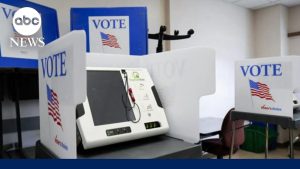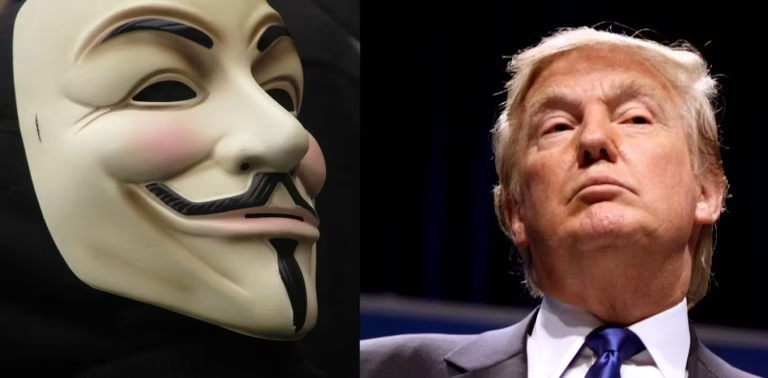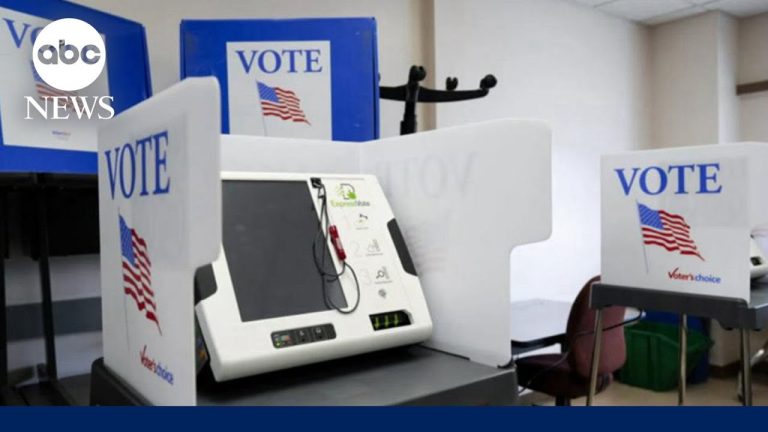-By Ernest A. Canning
December 15, 2011- Election laws in Wisconsin are not covered by Section 5 of the federal Voting Rights Act, which would otherwise require the Dept. of Justice or a federal panel of judges to "preclear" such laws to assure they are not discriminatory. Thus, it falls to non-governmental organizations, such as the American Civil Liberties Union (ACLU), to take legal action in hopes of protecting Constitutional voting rights for citizens of the Badger State.
That's exactly what the organization did this week, in filing a 54-page federal complaint on behalf of some 17 named plaintiffs — including elderly, student, minority and even veteran voters — who may well be unable to cast their once-legal vote under the state's new voter suppression bill passed earlier this year by its GOP legislature and signed into law by its Republican Gov. Scott Walker.
The lead plaintiff in Frank vs. Walker [PDF], the ACLU's class action lawsuit filed in the U.S. District Court for the Eastern District, seeking to halt enforcement of the state's new photo ID voting restrictions, is 84-year old Ruthelle Frank.
As we previously reported, Frank has been a lawful resident of Brokaw, WI since her home birth in 1927. Although she has voted in every election since 1948 and is an elected member of the Brokaw Village Board, she learned that she may be barred from voting come February 2012 because she lacks one of the official photo IDs mandated by that state's new vote-suppressing photo ID law.
She was born at home, without a birth certificate, and will be forced to pay $20 to get one in order to get her supposedly "free" ID to vote. But even that may not be enough. Frank recently learned she may not be able to comply with the state GOP's Photo ID restriction unless she coughs up upwards of $200 to amend the Register of Deeds record of her home, which had misspelled her maiden name.
The feisty octogenarian, however, was not about to quietly accept this assault on a right she had exercised without interference for the past 63 years (Visit Brad Blog to see a video interview with her), and so she agreed to lead the ACLU suit.
The ACLU complaint, however, may serve to be larger than just the 17 voters (and thousands of others included as part of 6 different classes) in the state of Wisconsin. If it succeeds, the lawsuit could have national implications that would go well beyond the question of who gets to vote in Wisconsin in the 2012 Presidential election. The case could serve to reverse the bevy of voter-suppression laws being enacted by Republicans in state after state in the wake of their take-over of statehouses across the nation in November of 2010…
Significance of 'as applied' challenge to WI photo ID law
The new draconian photo ID restrictions now in place across the country were all passed in the wake of Indiana's photo ID law which, in 2008, was the first to be granted approval by the U.S. Supreme Court.
In the Indiana case, Crawford vs. Marion County Board of Elections, the plaintiffs alleged that the state photo ID law was unconstitutional "on its face." The decision to challenge its constitutionality solely on the face of the statute alone proved fatal. The Supreme Court's lead opinion in Crawford, written by Justice John Paul Stevens and joined by Chief Justice John Paul Roberts and Justice Anthony Kennedy, observed that the plaintiffs had "not introduced evidence of a single, individual Indiana resident who will be unable to vote as a result of [the photo ID statute] or who will have his or her right to vote unduly burdened by its requirements."
In the newly-filed Wisconsin case, however, the ACLU, using representative plaintiffs, has challenged the constitutionality of the state's photo ID law "as applied" to six categories of WI residents who lack the requisite form of photo ID mandated by the statute. The complaint alleges that these WI residents face a severe, and at times, impossible burden — burdens which the lead opinion in Crawford suggests might have produced a different result in that case.
The ACLU's new challenge to the WI photo ID law not only offers the evidence of undue burden that was missing in the Crawford case as presented, but reveals fundamental distinctions between the ineffective factual record presented to the Supreme Court in that case, along with a powerful factual record that can be presented in Frank v. Walker.
According to the ACLU complaint, the WI photo ID statute is broader than the photo ID law at issue in Crawford. The Indiana law applied only to in-person voting, where the WI statute applies to absentee voting as well.
The District Court in Crawford found that 99% of IN voters already possessed the requisite ID.








